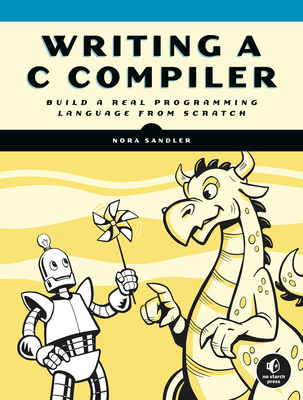
Sandler, Nora
product information
description
your own compiler for a real-world programming language. Compilers are at the heart of everything programmers do, yet even experienced developers find them intimidating. For those eager to truly grasp how compilers work, Writing a C Compiler dispels the mystery. This book guides you through a fun and engaging project where you'll learn what it takes to compile a real-world programming language to actual assembly code. Writing a C Compiler will take you step by step through the process of building your own compiler for a significant subset of C--no prior experience with compiler construction or assembly code needed. Once you've built a working compiler for the simplest C program, you'll add new features chapter by chapter. The algorithms in the book are all in pseudocode, so you can implement your compiler in whatever language you like. Along the way, you'll explore key concepts like:
Compilers aren't terrifying beasts--and with help from this hands-on, accessible guide, you might even turn them into your friends for life.
- Lexing and parsing: Learn how to write a lexer and recursive descent parser that transform C code into an abstract syntax tree.
- Program analysis: Discover how to analyze a program to understand its behavior and detect errors.
- Code generation: Learn how to translate C language constructs like arithmetic operations, function calls, and control-flow statements into x64 assembly code.
- Optimization techniques: Improve performance with methods like constant folding, dead store elimination, and register allocation.
Compilers aren't terrifying beasts--and with help from this hands-on, accessible guide, you might even turn them into your friends for life.
member goods
No member items were found under this heading.
Return Policy
All sales are final
Shipping
No special shipping considerations available.
Shipping fees determined at checkout.







